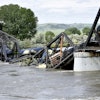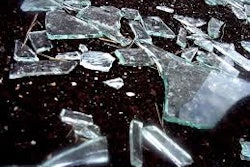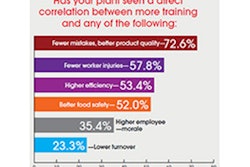TOKYO, Oct. 23 (Kyodo) — The Japanese government is hoping that UNESCO's likely registration of Japanese food as cultural heritage will help ease safety concerns over the country's foodstuffs resulting from the Fukushima nuclear disaster, its top spokesman said Wednesday.
"We will make efforts to win understanding for various foods, including fish caught by people in Fukushima Prefecture, who have been suffering from baseless rumors" as a result of the nuclear crisis, Chief Cabinet Secretary Yoshihide Suga told a press conference.
The comment came as the U.N. Educational, Scientific and Cultural Organization is expected to register "Washoku: Traditional Dietary Cultures of the Japanese" as an intangible cultural heritage asset as early as December.
If it happens, the registration "will contribute to our traditional food culture passing from generation to generation based on the Japanese spirit that attaches importance to nature," Suga said.
An organization conducting screening of candidates for UNESCO registration, called the Subsidiary Body, issued Monday a recommendation to list Japanese food culture, sources said Tuesday. Such a recommendation has never been rejected.
The registration is expected to be formally approved by the UNESCO intergovernmental committee, scheduled to meet from Dec. 2 to 7 in Baku, Azerbaijan.
Tokyo plans to widely publicize the registration as part of its effort to rebuild Japan's northeastern region devastated by the March 2011 earthquake and tsunami, which also triggered reactor-core meltdowns at Tokyo Electric Power Co.'s Fukushima Daiichi nuclear power plant.
The development would be more positive news for the country, following the Tokyo's successful bid to host the 2020 Summer Olympics. But it could also intensify international scrutiny of the way the government of Prime Minister Shinzo Abe is handling the Fukushima crisis.
Attention is currently focused on the massive buildup of radioactive water and spillage into the Pacific Ocean -- responsible in part for food safety concerns. Abe has said the situation is "under control."
Due to radiation fears, South Korea has banned imports of marine products from Fukushima and seven other Japanese prefectures.
Tokyo has brought the case to the World Trade Organization, requiring Seoul to lift the ban. South Korea has demanded scientific data to support Japan's claim the products are safe.
UNESCO has registered four food cultures as heritage -- French, Mexican, Mediterranean and Turkish.
This time, its screening organization made a total of 23 recommendations for the list of intangible cultural heritages, including South Korean-proposed kimchi pickle.
The Japanese government made a proposal for UNESCO registration of the country's food culture in March 2012, backing the campaign initially launched by an incorporated nonprofit organization made up of cooks in the ancient Japanese capital of Kyoto.





















